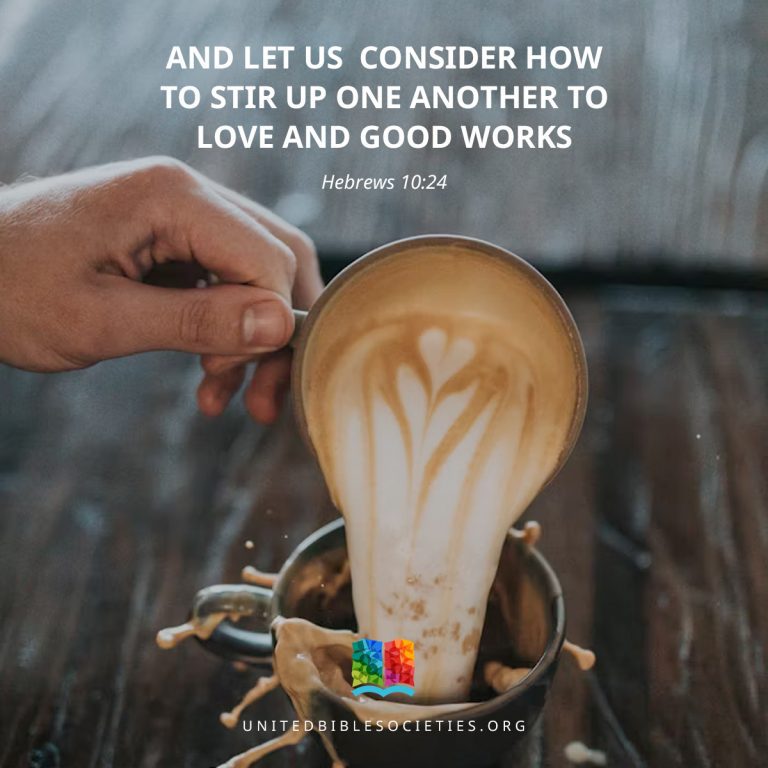1 Every high priest is appointed to help others by offering gifts and sacrifices to God because of their sins. 2 A high priest has weaknesses of his own, and he feels sorry for foolish and sinful people. 3 This is why he must offer sacrifices for his own sins and for the sins of others. 4 But no one can have the honor of being a high priest simply by wanting to be one. Only God can choose a priest, and God is the one who chose Aaron.
5 This is how it was with Christ. He became a high priest, but not just because he wanted the honor of being one. It was God who told him,
“You are my Son, because today
I have become your Father!”
6 In another place, God says,
“You are a priest forever
just like Melchizedek.”
7 God had the power to save Jesus from death. And while Jesus was on earth, he begged God with loud crying and tears to save him. He truly worshiped God, and God listened to his prayers. 8 Jesus is God's own Son, but still he had to suffer before he could learn what it really means to obey God. 9 Suffering made Jesus perfect, and now he can save forever all who obey him. 10 This is because God chose him to be a high priest like Melchizedek.
Warning against Turning Away
11 Much more could be said about this subject. But it is hard to explain, and all of you are slow to understand. 12 By now you should have been teachers, but once again you need to be taught the simplest things about what God has said. You need milk instead of solid food. 13 People who live on milk are like babies who don't really know what is right. 14 Solid food is for mature people who have been trained to know right from wrong.
Daruri alŋa lela momaŋ gi dhai dha kwiji gwina gwiro Masiiẖi
1 Leleny peth la gusus lina lupinu gi liji ganu ligitinu lan liji gi ŋidi ŋina ŋathildhedha Kaloŋa, duŋwdhedha Kaloŋa dhedhaŋw tur, ŋwudhuge ŋida ŋan ŋidi ŋina ŋike. 2 Ŋwuthi ŋoma ŋwumutha dhugore gi liji lina lidhimithi a lina lidhudho; ŋinena juŋw ko keligeny ganu gi mule nono. 3 A gi dhuŋun ibidha dhadhi mule nono aram gwadhedha Kaloŋa ŋida ŋan ŋidi ŋina ŋike ŋa liji a minoŋ ko ŋan gwidom gwuŋun. 4 Kwiji gweda gwati gwuthi ŋoma dapai nuŋw ibigwa kwidom gwai gwuŋun no, abi gwina gwurnio Kalo, gwiro ŋinena urniuŋwna H̱aruunuŋw ko. 5 A minoŋ ko al Masiiẖ gwati gwimajidho gwidom gwuŋun gwiren duŋwuro kweleny gwa gusus no; abi gwina gwaicinu, Ŋa gwiro Ŋari ŋiny, nyi gwimaŋa liŋa ŋinenaŋina. 6 Gwiro ŋinena aruŋwna kalo giter ko, Ŋa gwaro gasiis gwortal, gi ruṯba gwa Malkiis̱aadag. 7 Gwina gwijo gi ŋwamun ŋwa aŋinu yuŋun, dina abiŋaijuŋw Kaloŋa gwulo gwai gwuleny a ŋwal ŋwai ŋwothaije Kaloŋa galo gina guthi ŋoma duŋw gilaŋiye gi ai, a ŋeda deŋinaijo ŋinena uthuŋw ŋidhenyo ŋuŋun; 8 ŋinena ruŋw Ŋari, ŋwalimiye uthejuŋw kuni gi dhuŋun dhina dhumeyo ŋiya; 9 a gwimaro didima, ŋwuro kweleny gwa gilaŋ gwina gwathije gwortal di ŋediŋa peth lina lathuthejo ŋeduŋw nyuni; 10 gwina gwidhedhinu jiriny di Kalo jan kweleny gwa gusus gi ruṯba gwa Malkiis̱aadag.
11 Gi dhuŋun dha dhuŋun ibidha anaŋa luthi dhuŋuna dhoinyadho dhanadhai abiŋi, a dhibur dhajaŋajo dhuŋuna ibidha, ŋinena uthanya eluŋw micimicol didiŋini. 12 Titiganu gwiŋiranu danyaro liji lina lathalimiye lijo, ŋinena diŋinanya kaija gina golaŋ ganu, abi nyaŋa libupo daji kwiji gweta alimiye manaŋ dhuŋuna dhina dhiro kwerkwereny dhina dhidhi di Kalo; a nyaŋa limaro lina libupo ŋan, a nyaŋa lati libupo kia gina gibur no. 13 Gwati gweda gwina gwathiye ŋan gwiliŋidhi dhuŋuna momaŋ gi dhuŋun dha dhuŋun dhina dhiŋir no, ŋinena ruŋw lugur. 14 Abi kia gina gibur gan ŋediŋa lina limaro lipilipa, lina limuthi ŋadigirenya ŋina ŋaliminu dilliŋa dhuŋuna gi dhuŋun dhina dhiŋir a dhina dhike.

